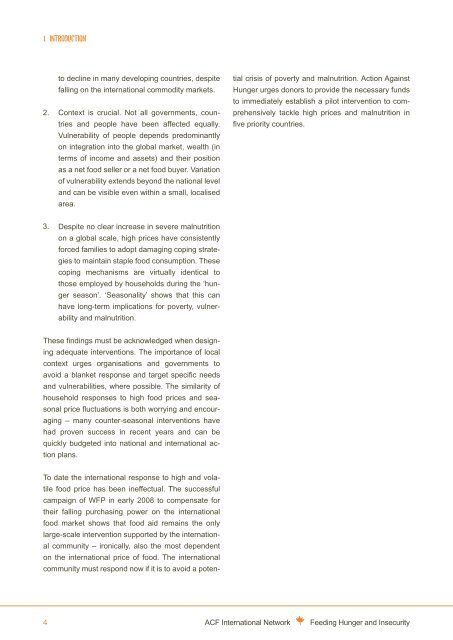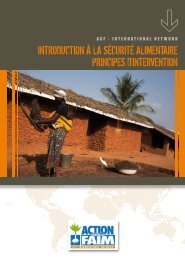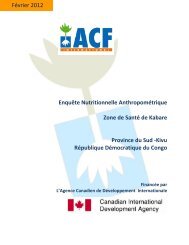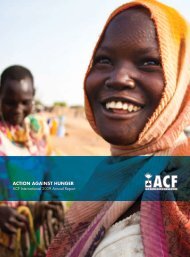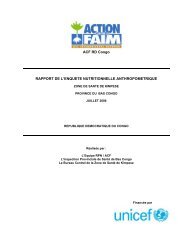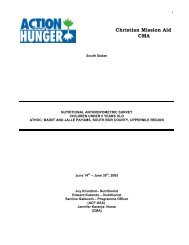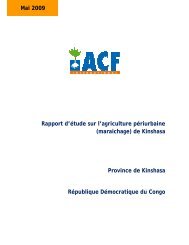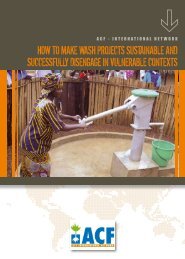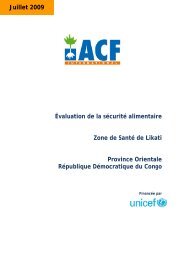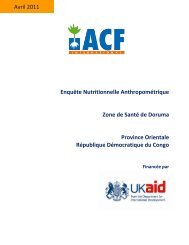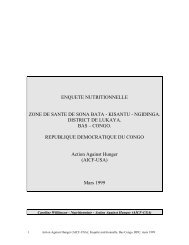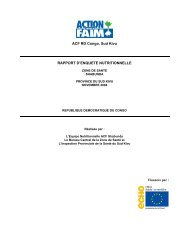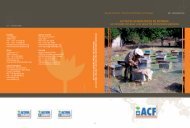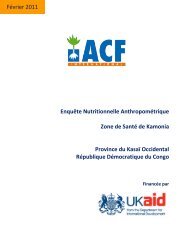Feeding hunger and insecurity
Feeding hunger and insecurity
Feeding hunger and insecurity
- No tags were found...
You also want an ePaper? Increase the reach of your titles
YUMPU automatically turns print PDFs into web optimized ePapers that Google loves.
1. Introductionto decline in many developing countries, despitefalling on the international commodity markets.Context is crucial. Not all governments, countries<strong>and</strong> people have been affected equally.Vulnerability of people depends predominantlyon integration into the global market, wealth (interms of income <strong>and</strong> assets) <strong>and</strong> their positionas a net food seller or a net food buyer. Variationof vulnerability extends beyond the national level<strong>and</strong> can be visible even within a small, localisedarea.To date the international response to high <strong>and</strong> volatilefood price has been ineffectual. The successfulcampaign of WFP in early 2008 to compensate fortheir falling purchasing power on the internationalfood market shows that food aid remains the onlylarge-scale intervention supported by the internationalcommunity – ironically, also the most dependenton the international price of food. The internationalcommunity must respond now if it is to avoid a potentialcrisis of poverty <strong>and</strong> malnutrition. Action AgainstHunger urges donors to provide the necessary fundsto immediately establish a pilot intervention to comprehensivelytackle high prices <strong>and</strong> malnutrition infive priority countries.Despite no clear increase in severe malnutritionon a global scale, high prices have consistentlyforced families to adopt damaging coping strategiesto maintain staple food consumption. Thesecoping mechanisms are virtually identical tothose employed by households during the ‘<strong>hunger</strong>season’. ‘Seasonality’ shows that this canhave long-term implications for poverty, vulnerability<strong>and</strong> malnutrition.These findings must be acknowledged when designingadequate interventions. The importance of localcontext urges organisations <strong>and</strong> governments toavoid a blanket response <strong>and</strong> target specific needs<strong>and</strong> vulnerabilities, where possible. The similarity ofhousehold responses to high food prices <strong>and</strong> seasonalprice fluctuations is both worrying <strong>and</strong> encouraging– many counter-seasonal interventions havehad proven success in recent years <strong>and</strong> can bequickly budgeted into national <strong>and</strong> international actionplans.4ACF International Network<strong>Feeding</strong> Hunger <strong>and</strong> Insecurity


